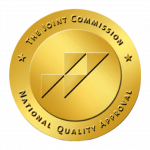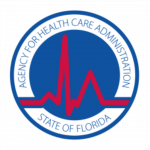Prescription drug abuse is an epidemic in the United States. According to the National Institute on Drug Abuse (NIDA), prescription drug abuse in the U.S. continues to increase. Drug abuse is the intentional misuse of prescription medicine. Abusing, or taking a prescription medication that is now how your doctor prescribed it to you is drug abuse. Another form of drug abuse is taking a prescription medication that was not prescribed to you.
Sometimes, drug abuse and addiction are used interchangeably, but they are not the same concept. Opioids are a broad group of pain-relieving drugs that work by interacting with opioid receptors in your cells. These drugs are prescribed by doctors, as well as health care physicians to help alleviate pain. However, when using these drugs for a prolonged period of time, the lessor the effect on the body. Eventually, causing the body to develop a dependence on the drug.
Percocet
Percocet, a powerful painkiller, is one of the most commonly abused prescription drugs. Not only can this medication be addictive, but can also be deadly if misused or taken without a prescription. Percocet is a combination of oxycodone, an opioid derived from the same source as heroin, and acetaminophen.
Percocet stimulates the brain’s reward center in the same way other opioids do. Meanwhile, Oxycodone works by changing the way your brain tells your body how to feel and respond to pain. Acetaminophen is a non-opioid pain reliever that can also help to reduce a fever.
Percocet Addiction Symptoms
Percocet addiction can cause a variety of side effects, even when used legitimately. It is often prescribed to alleviate moderate to severe pain from cancer treatments and surgeries. Percocet use for these types of medical purposes may lead to some mild side effects, however, usually subside after the first few days. Despite this, when abusing long-term, the effects can be more severe and cause addiction.
Short-Term
- Dizziness
- Nausea
- Blurred vision
- Dry mouth
Long-Term
- Fever
- Extreme fatigue
- Chest pain
- Hypothermia
- Increased thirst
- Hypotension or hypertension
- Shallow breathing
- Slowed heartbeat
- Feeling lightheaded or fainting
- Confusion or unusual thoughts or behavior
- Seizures
- Jaundice (yellowing of the skin)
- Problems with urination, including dark urine
- Gastrointestinal problems, including diarrhea, nausea, vomiting, or loss of appetite
- Visual disturbances
- Insomnia
- Anxiety, agitation, or nervousness
- Hallucinations
- Depression
Social Signs of Percocet Addiciton
The addiction may not be physically visible, but Percocet addiction symptoms can have an impact on your social life. Percocet abusers will often start to isolate themselves from friends and family members due to their drug use. As well as, becoming more hostile towards others around them.
Lying about a prescription or stealing medication from friends and family is a sign that you have a problem. Furthermore, it is common for someone who is abusing prescription drugs to lie about losing or never receiving their prescription. Visiting multiple doctors in a short time frame is a red flag to be aware of. Oftentimes, an addict will try to receive multiple prescriptions from different doctors or pharmacies in order to remain undetected.
Getting Help
It is important to know the Percocet addiction signs and symptoms. If you think that you or a loved one may have a problem, seek help right away by talking with your health care provider about treatment options. There are many ways to get help for Percocet addiction, including detoxification programs and as well as Medical Assisted Treatment (MAT).
Both of these services are offered at Harm Reduction Center in South Florida. At Harm, we understand and recognize addiction and recovery look different for everyone. We are a private healthcare facility that provides highly individualized services to each and every client. Many of our staff have a personal and emotional understanding of recovery and the process because they were once in the same position. There is always hope, and if you or a loved one needs help, contact us today.














